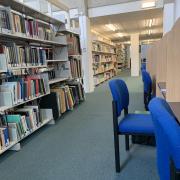
The importance of teaching sign language in our schools
Sign language is used to communicate to people who are deaf or hard of hearing. Being able to communicate with people in general is important but this is especially true when we are dealing with those who have more obstacles to overcome when trying to have a simple conversation than the average person. So why do we not see this crucial language often being taught in our schools?
Well, although there are many petitions and articles declaring that sign language must be taught in all schools, it doesn’t seem to be a mainstream language being taught to students in UK schools. Despite this, the Department of Education is ‘considering’ introducing British Sign Language GCSE to schools by 2022. However, to many people, this doesn’t seem to be enough.
Sarah Rutter, a Sixth Form student from Newstead Wood school has introduced a sign language club available for all years to attend. Sarah has stated that ‘starting small’ with this new club makes an influence on the school community and it is possible for this to branch out and have a larger impact on other people. Both of Sarah’s parents are deaf so she has had a first-hand experience witnessing the frustration that comes with the language barrier between deaf people and fully- hearing people. This is the main inspiration behind the creation of the club. When asked about the importance of teaching sign language in our schools, she said that it is necessary for every school to have some form of sign language lesson or extra- curricular. According to Sarah, British Sign Language (BSL) can be considered as one of the ‘easiest’ languages to learn. Some people may argue that it is not necessary for those not personally affected by deafness or are around those who are deaf but Sarah claims that those who are deaf ‘really appreciate’ the effort that people put in when learning sign language as it shows that there is a sense of community and inclusiveness. She also added that her father is currently redundant, and it is difficult for him to find work due to this barrier of communication. She claims that if sign language is more widely taught, these aspects of deaf people’s lives can be easier.
Although sign language may not be a language that many people consider when discussing languages in general, there is no doubt that learning sign language is important to not just those affected but to anyone. There is hope that it will become more widely taught in UK schools, maybe even being compulsory in the future.
Maryam Khalaf


























